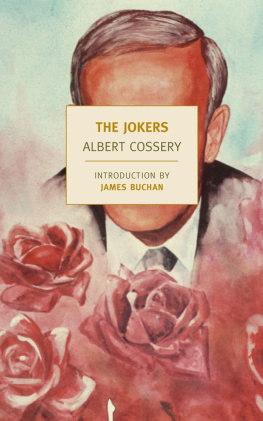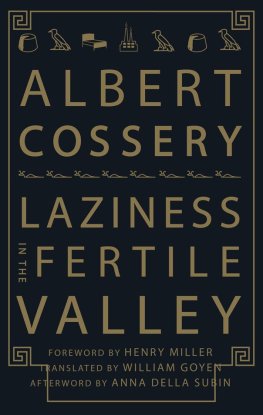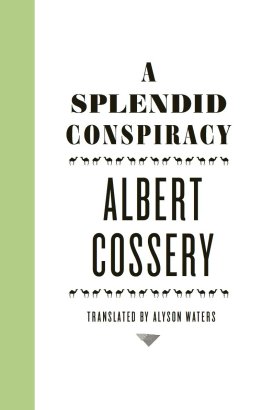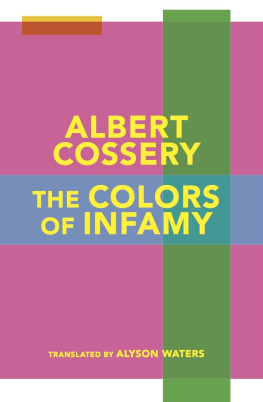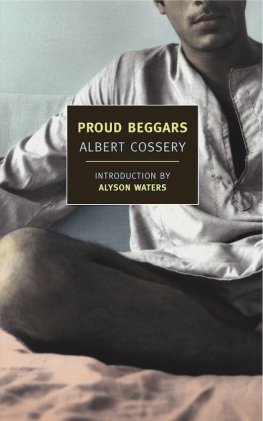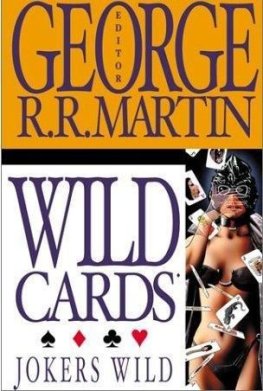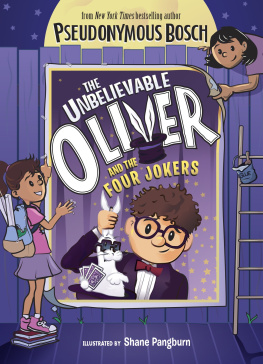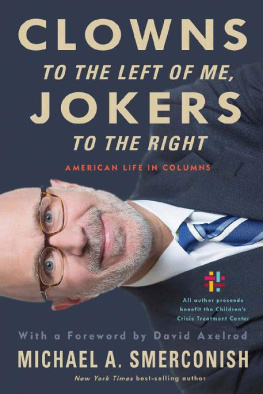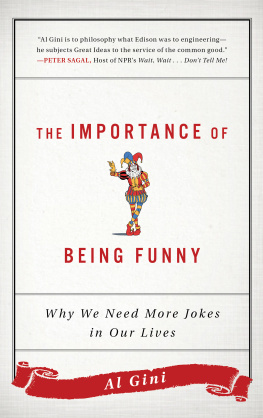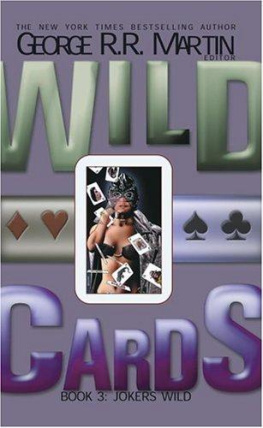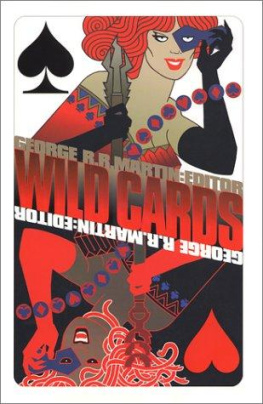Introduction
Albert Cossery is a novelist all on his own. As consistent in his themes as in his sedentary habits, he published every ten years or so of a long life a novel written in French and set (with a single exception) in Egypt.
Since his death in Paris in 2008, Cosserys blend of low-life nostalgia and philosophical dandyism has won new readers in France and, in rather lesser numbers, in Egypt and Lebanon. This sparkling novel, first published as La violence et la drision by Julliard in Paris in 1964, is the sixth of his nine books to be translated into English.
Cossery was born in 1913 in Cairo into a Greek Orthodox family with some private means. Educated in the French schools of Cairo, Cossery was drawn to both surrealism and Baudelaire and, at the age of eighteen, published a book of verse, Les morsures (Bites), which I have not been able to locate.
After a cruise as a ships steward to the United States, where he seems to have met Henry Miller, he published in Cairo in 1941 a book of five surrealist stories, Les hommes oublis de Dieu, translated as Men God Forgot and praised by Miller. The book found its way to Algiers where it came to the attention of both Edmond Charlot, publisher of Albert Camus, and Camus himself. Cosserys first novel, La maison de la mort certaine (translated as The House of Certain Death), came out in Cairo in 1944. With the liberation of Paris, Cossery moved there as did Charlot, who republished both books.
At some point, Cossery married. The marriage was a failure, though whether this was a cause or an effect of Cosserys contempt for women, or both, I cannot tell. At the end of 1945, he installed himself in the hotel La Louisiane in the Latin Quarter, where he was to live (first in Room 58 and then in Room 70) for the next sixty years. Like his characters, Cossery rose late. He frequented literary cafs such as the Caf de Flore and the Deux Magots and devoted himself to affairs of gallantry. His pose of extreme indolence concealed, as with Stevenson, a heroic industry.
The House of Certain Death, in which indigent tenants await the imminent and inevitable collapse of their slum house, sets out Cosserys principal themes. Like Baudelaire, he has neither compassion nor sympathy for the poor, only a limitless curiosity. Cossery is fascinated by the division of labor in the very pit of society. His monkey men, melon sellers, sweepers, repairers of kerosene stoves, cigarette-stub pickers are echoes of Baudelaires chiffonniers (rag pickers). Cossery is entranced by very, very small sums of government money: the one-millime piece (about a quarter of a U.S. cent) that the women of the house pay for a guide to the address of the slums landlord, the two-piastre piece (a nickel) that buys a night in a hotel with only three eiderdowns for twenty guests.
Laid over the Arabic notion of 'eish (the easy life) is a sort of Cynicism, derived either from his own reading of Greek literature or by way of Camus. Like Diogenes of Sinope, the original Cynic or dog philosopher, who lived in his own filth and told Alexander the Great to get out of his light, Cosserys heroes do not seek virtue, knowledge, or salvation, but, in a world that is raving mad, only a natural and malodorous contentment. Cosserys manifesto is: The most terrible thing is not to be poor, but to be ashamed of it.
There followed, in 1948, again with Charlot, the most beautiful of all his books and his farewell to surrealism, Les fainants dans la valle fertile, translated as The Lazy Ones. Here a family of men, engulfed in an antedeluvian lethargy, or paresse sculaire, in a filthy villa in the Nile delta, continually besieged, ambushed, and overwhelmed by sleep, confront a crisis when their father considers taking a wife. There are passages of such otherworldly comedy you might be reading the first chapters of the Quixote.
Cosserys next novel was his longest and least satisfactory, Mendiants et orgueilleux (1955), translated as Proud Beggars. Here a university professor sinks into hashish and serene penury. For no reason at all, he murders a sixteen-year-old prostitute.
Having walked straight into the capital paradox of the Cynics philosophy, Cossery then withdrew from his exposed philosophical positions. Beginning with The Jokers, the characters diminish in number and become more dandified. The scene is swept a little and given a lick of paint. The insurrectionary spirit that flickers at the end of The House of Certain Death gives way to a more subtle protest.
Against bourgeois society, with its tyrannies, pitiable privileges, and futile exertions, Cossery pits flnerie, idleness, nonchalance, ridicule, and the insolence and sexual frigidity of the dandy. In The Jokers, which is set in Alexandria, the local governor has declared war on beggars and idlers. There are distant echoes of the revolutionary debates of the age, from the Situationists to Fanon, but those are submerged in comedy. Un complot de saltimbanques (1975), translated as A Splendid Conspiracy, and Une ambition dans le dsert (1984), which is set in the only Persian Gulf sheikhdom without any petroleum, are variations of this theme.
In Cosserys final novel, Les couleurs de linfamie, published in 1999 but portraying Cairo in a sort of perpetual early 1970s, the slumlord who is the moral villain of

